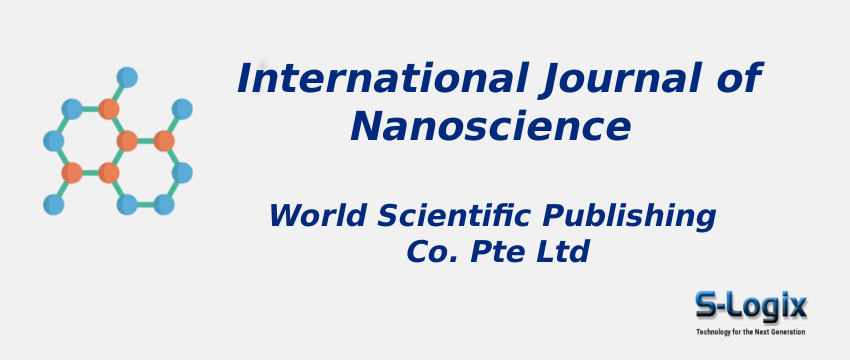Journal Home: Journal Homepage
Editor-in-Chief: Prof. Massimo F. Bertino (Virginia Commonwealth University, USA)
Print ISSN: 0219581X
Electronic ISSN: 17935350
Abstracting and Indexing: Scopus
Imapct Factor 2024: 1.1
Subject Area and Category: Biochemistry, Genetics and Molecular Biology, Biotechnology, Chemical Engineering, Bioengineering, Computer Science, Computer Science Applications, Engineering, Electrical and Electronic Engineering, Materials Science, Materials Science (miscellaneous), Nanoscience and Nanotechnology, Physics and Astronomy, Condensed Matter Physics
Publication Frequency:
H Index: 34
Q1:
Q2:
Q3: Bioengineering
Q4:
Cite Score: 1.8
SNIP: 0.584
Journal Rank(SJR): 0.221
Latest Articles: Latest Articles in International Journal of Nanoscience
Guidelines for Authors: International Journal of Nanoscience Author Guidelines
Paper Submissions: Paper Submissions in International Journal of Nanoscience
Publisher: World Scientific Publishing Co. Pte Ltd
Country: Singapore
